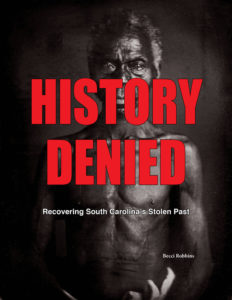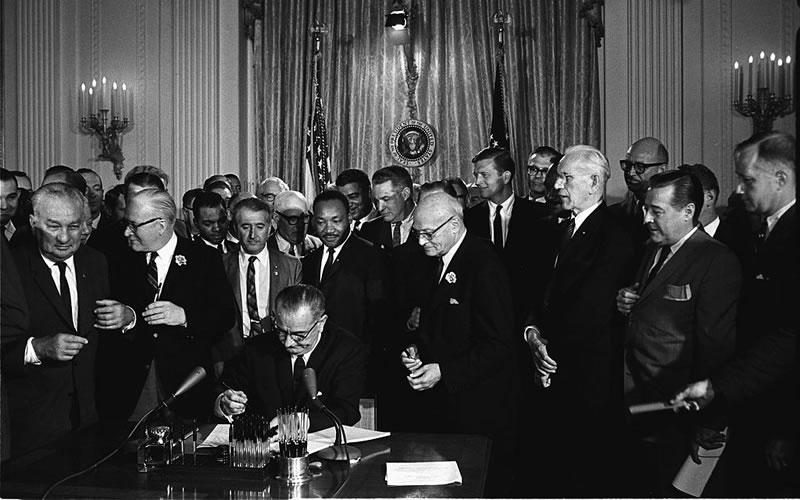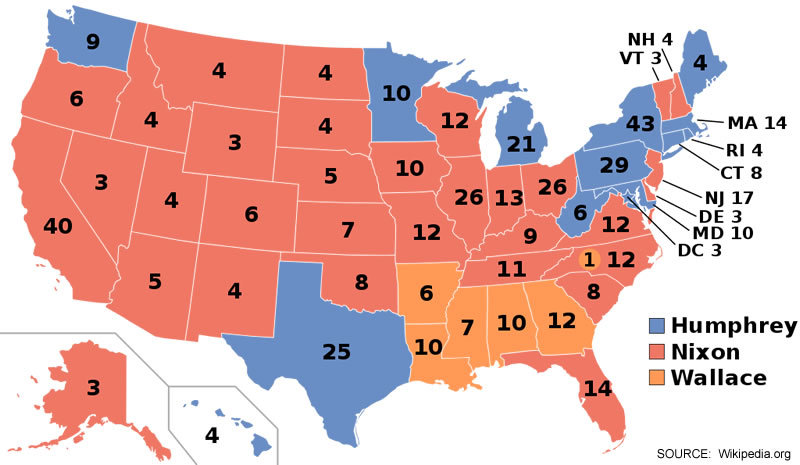
A news analysis by Andy Brack, editor and publisher | It has been 50 years since candidate Richard Nixon put into action a South Carolina adviser’s plan to prey upon fear and race to get white voters to cast ballots for the GOP.
 Devised as a “Southern strategy” by native son Harry Dent Sr., South Carolina political observers say the 1968 initiative is far from something in the history books. Rather, it’s alive and well, a continuing font of inspiration for Republican campaigners in an age where rage and race fuels tweets from the current president on down.
Devised as a “Southern strategy” by native son Harry Dent Sr., South Carolina political observers say the 1968 initiative is far from something in the history books. Rather, it’s alive and well, a continuing font of inspiration for Republican campaigners in an age where rage and race fuels tweets from the current president on down.
“[President Donald] Trump is not a GOP anomaly,” observed the Rev. Joseph Darby of Charleston. “He’s the next step in the evolution of a GOP that’s blown coded and subtle racial ‘dog whistles’ for 50 years – dog whistles that increased in volume with the rise of Sarah Palin to the national stage and with the advent of the Tea Party as a reaction to President Obama’s election.”
But it’s important to consider another impact of the Southern strategy. It didn’t just affect the Republican Party. Over the last 50 years, it made the Democratic Party harsher and shriller as its members attempted to respond in kind using the politics of economics instead of the politics of race. Democrats have tried, generally unsuccessfully in the South, to convince people to vote for then because the party’s programs and stances were in their economic interests.
Now in 2018, the Southern strategy has evolved into a national reality of everybody shouting at everyone else about everything.
Heading toward a Southern strategy
Longtime activist Brett Bursey of Columbia said South Carolina’s combination of race and politics has been around since the colony was founded 348 years ago as a business enterprise that quickly became based on slavery. By the time of American independence, slavery became enshrined in the Constitution.
 “The U.S. wouldn’t have been a slave nation in the beginning had it not been the delegation from South Carolina” at the constitutional convention, he said.
“The U.S. wouldn’t have been a slave nation in the beginning had it not been the delegation from South Carolina” at the constitutional convention, he said.
The economic importance of slavery in the Palmetto State is reflected in the 1860 census. The slave population outnumbered the free population in just two states: South Carolina (57.2 percent slaves) and Mississippi (55.1 percent).
Fast forward through the Civil War and Reconstruction, the end of which returned the white elite to power. They implemented Jim Crow laws for what became a legal way to keep the plantation culture alive through tenant farming. White supremacy thrived. Lynchings proliferated with more than 3,400 blacks and almost 1,300 white “extrajudicial killings” between 1882 and 1951, according to a Tuskegee University study cited in “History Denied,” a 2018 booklet by the S.C. Progressive Network.
In 1948, then Gov. Strom Thurmond of South Carolina ran for president as a Dixiecrat – a breakaway from ruling Democrats – on a platform to protect the rights of states to determine how to deal with racial segregation, then the law of the land in Southern states. Over the next generation, the nation struggled with race, culminating in the enactment of federal civil and voting rights protections in the mid-1960s.
An opportunity in 1968

The national election of 1968 was the first in which millions of newly-enfranchised blacks became a real part of the electorate. Blacks were voting, going to integrated schools and starting to move into “white” neighborhoods. It was a big change for white Southerners. And it was an opportunity for the GOP.

Dent, an adviser to Nixon, recognized how the political playing field was shifting and translated it for impact. He became a major architect of the Southern strategy, which successfully won white votes in the solid Democratic South by appealing to fears and prejudices of white Southern voters upset by changes caused by the Civil Rights Act of 1964 and the Voting Rights Act of 1965.
Dent, a St. Matthews native who had been on U.S. Sen. Strom Thurmond’s staff in the 1950s, served as the state’s Republican Party chairman from 1965 to 1968 before joining Nixon’s team. Dent’s 2007 obituary in The New York Times outlined the strategy that changed politics forever in the South:
“Its detractors call it racism cloaked in code words like ‘law and order.’ Its advocates call it a legitimate appeal to people left on the sidelines while other groups benefit from affirmative action and government aid programs. In any event, the strategy was credited with the Nixon victory.”
Historian Dan T. Carter, professor emeritus at the University of South Carolina, echoed the substance of the summary in a 2016 interview.
“The genius of Nixon was to come up with a way of talking about race without talking about race,” said Carter, author of “The Politics of Rage.” With the Southern strategy, Carter explained, “You find issues which profoundly resonate with underlying racial attitudes — welfare, busing and schools — and you focus on those in a way that invokes people’s racial fears without saying you’ve got to keep those black folks out of the schools or out of the neighborhoods.”
Advancing the Southern strategy

The strategy matured in South Carolina as another GOP political consultant named Lee Atwater helped hard-charging campaigns use race as a wedge to get more South Carolinians to back Republican candidates.

By 1981, Atwater, then 30, was working in President Ronald Reagan’s White House, fresh off of an aggressive campaign to re-elect Rep. Floyd Spence, R-S.C., who was challenged by Democratic attorney Tom Turnipseed.
Atwater, described by Bursey as “scary, scary smart,” was interviewed in 1981 on how Republicans were adapting the Southern strategy to win elections. A tape of the 42-minute interview came to light in The Nation magazine after the academic who interviewed him died. Said Atwater:
“You start out in 1954 by saying, ‘Nigger, nigger, nigger.’ By 1968 you can’t say “nigger”—that hurts you, backfires. So you say stuff like, uh, forced busing, states’ rights, and all that stuff, and you’re getting so abstract. Now, you’re talking about cutting taxes, and all these things you’re talking about are totally economic things and a byproduct of them is, blacks get hurt worse than whites.… ‘We want to cut this,’ is much more abstract than even the busing thing, uh, and a hell of a lot more abstract than ‘Nigger, nigger.’”
Nationalizing the Southern strategy

By the 2000s, the Southern strategy morphed into a divide-and-conquer approach to steer voters into the GOP.
“It’s the same thing, now,” said Columbia resident Judy Turnipseed who lived through the Atwater campaign days as her husband ran for Congress. “It’s the same kind of coded language that really speaks to people now like it did then.”
Darby said the Southern strategy is alive and well.

“I used to wish that South Carolina’ politics would be more like those in other states, but over time, national politics have become more like South Carolina’s politics,” he said. “Ours is now a ‘tribalized’ nation, with many in the GOP making political hay by stirring the racial fears and grievances of those who feel ‘put down’ by people of color and who worry that a ‘majority-minority’ electorate will exact vengeance for years of racial oppression.”
Then after the presidential election of Barack Obama in 2008 came the Tea Party, steeped in Southern strategy vitriol that ratcheted up everything a notch.
“The Tea Party was a precursor to what we now have,” Darby said. “They [tea partiers] made it hard for those in the [traditional] GOP — who stirred the poor, white masses with fear-based rhetoric so that they could quietly work to benefit the wealthy – to control the masses.”
By 2012 when The Nation’s Rick Perlstein wrote about Atwater’s 1981 interview, he cited use of the Southern strategy through “the use of race-baiting dog-whistles (lies about [Barack] Obama ending work requirements for welfare; “jokes” about his supposed Kenyan provenance) in the Romney presidential campaign.”
And who thrust Obama’s ancestry into the limelight? Trump, a president who mastered use of divisive language in 2016 to peel voters toward his America First messaging that was geared to inflame angry white Americans who have felt left out for too long.
The nastiness continues. Just last month, Trump called a former key White House staffer who is black a “dog,” a way to dehumanize her just as white authority figures literally dehumanize blacks in civil rights protests by turning dogs and water cannons on them. Meanwhile, the GOP nominee for governor in Florida last month used what some say was a slur to criticize his black Democratic opponent: “The last thing we need to do is monkey this up by trying to embrace a socialist agenda with huge tax increases and bankrupting the state,” he said.
Immigration is the new dog whistle

A Republican operative from South Carolina who asked not to be named is worried the nation is moving away from its core, founding principles.
“The fear factor today is being used in the battle over immigration reform,” the consultant said. “The nationalist populist movement led by Trump has been at the forefront.
“Yes, we need to need to fix our immigration policies but the majority of those affected are hard-working individuals doing jobs many native-born citizens apparently refuse to do in horticulture, agriculture, domestic service or other areas. Are there bad people who are also here illegally, absolutely. Just as there are bad people who also happen to be native born, and who are white and black.
“We need to enforce the laws but we need to be careful not to forget we are a nation of immigrants whose forefathers, just like many today, came here seeking a better life and a better opportunity to provide for their families.”
Immigration, the consultant said, really isn’t a state-based policy that state legislators can do anything about.
“Yet we allow that narrative to creep into races for the state house or even local office, solely for the purpose of creating fear, and motivating voters. It’s shameful and misleading.”
Moving forward
In the absence of alternatives, using the principles of the Southern strategy to divide will continue, many agree. How can we get beyond that?
“Better leaders who are not focused on getting specific agenda items accomplished [and] not merely being reelected,” one Republican said.

S.C. Rep. Jerry Govan, an Orangeburg Democrat who will lead the S.C. Legislative Black Caucus in January, says leaders in the state need to move away from the politics of fear and embrace a “values-driven politics” with people who stand up for truth, justice, fairness and respect.
“We miss out as a state by allowing a small but vocal core group from the extremes to drive the majority who make the decisions that impact the daily lives of those that count on us to do the right thing,” Govan said.
“We become paralyzed by our own fear of not being far enough to the right or left, which limits our ability to meet somewhere in the middle to solve the real problems of the socio-economic: wealth gaps, systemic poverty, health and educational disparities, to name a few.”
- Have a comment? Send to: feedback@statehousereport.com















 We Can Do Better, South Carolina!
We Can Do Better, South Carolina!
Excellent analysis plus it explains why southern whites vote against their own economic interests.
I hope this column will appear in the newspapers that rum the Statehouse Report.
Excellent. I wish they would run this in The State. Then it would be worth reading
Great article that should be required reading.
Great article. It should be required reading.
Well done. I learn alot from your articles and its insights.
Excellent analysis and historical survey contextualizing today’s dangerous conditions and challenges of struggle both locally in South Carolina and nationally throughout the “body
politic”. This is a “must read and study” for the education and activism of ALL Progressive
folks in South Carolina as well as in the country at large because a substantial part of the
United States of America is infected with this metastasizing cancer. An excellent contribution
to thoughtful, progressive and democratic work with “The Bill of Rights” and its Amendments
as basic to a substantive democracy in America.
Brett Bursey is a little confused on when slavery started here in the South.
It was about 1607 in Virginia.
By the Constitutional Convention in 1787 they made provisions on ending the importation of slaves.
The Constitutional Convention was actually the beginning of the end of slavery in the South and the rest of the United States.
Great, concise summary of the impact of the Southern strategy on the body politic. I would love to see wider readership with publication in the major papers of the state.